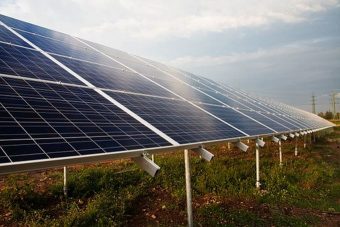
The world’s largest solar module manufacturer has suspended plans set up a fabrication facility in one of the fastest growing markets – India.
The head of sales for Trina Solar in India recently confirmed that the company has shelved plans to set up a 1 gigawatt solar module manufacturing facility in the country. Gaurav Mathur stated over capacities in the global solar modules market as the reason behind this decision. While this assertion may be true for the overall global market, it does not hold ground in India, especially with the massive expansion in installed capacity planned by the Indian government.
India plans to auction at least 74 gigawatts of solar power capacity between January 2018 and March 2020, or 2.7 gigawatts capacity every month, on average. Compare this with the installed annual solar module production capacity in India of 5 gigawatts and you’ll understand the huge gaping hole that needs to be fixed from the production side.
Trina Solar had planned to set up a 1 gigawatt production facility in the state of Andhra Pradesh. The project was announced following a policy push (Make In India) by the central government to encourage investment in the manufacturing sector. However, at least the solar module manufacturers are yet to see a clear policy that offer incentives for production solar cells or panels. So, after waiting for two years, Trina Solar found it prudent not to pursue its production facility plans, or it could be a way to pressure the government to move swiftly on the policy front.
“We are willing to manufacture in India, provided we get some kind of benefit, specifically for solar industry. It is only a matter of time. We will set up (the manufacturing unit) provided we have the right kind of policy support from the government,” Mathur said.
The prospect of a planned $400-500 million investment from a foreign company being jeopardized may very well push the government to act swiftly on its solar manufacturing policy. Already, the Ministry of New & Renewable Energy is planning to implement an auction policy for setting up solar equipment manufacturing facilities. According to media reports, the government may float tenders to set up 20 gigawatts of solar equipment manufacturing capacity.
It is unclear if Trina’s decision is a reaction to this policy change news, as such auctions would only increase competitiveness in the market.
Source: cleantechnica.com



